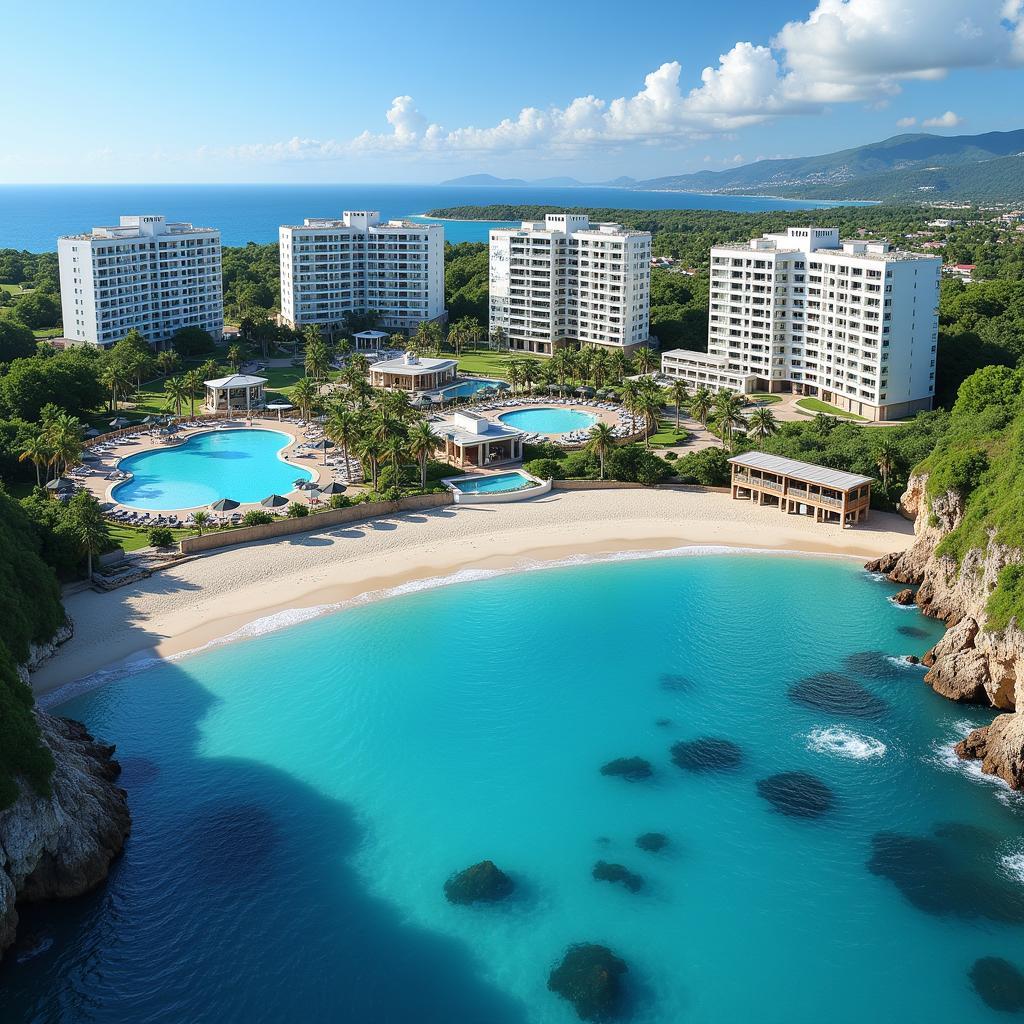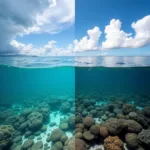Tourism’s impact on water resources has become an increasingly common topic in IELTS Writing Task 2, appearing in various forms over the past few years. Similar to how tourism affects the environment in developing nations, this theme tests candidates’ ability to analyze environmental challenges in the tourism sector.
 Tourism impact on water resources in popular coastal destination
Tourism impact on water resources in popular coastal destination
Recent IELTS Question Analysis
Some people believe that the tourism industry’s excessive use of water resources in many countries is negatively affecting local communities. To what extent do you agree or disagree with this statement?
Understanding the Question
- Topic: Tourism’s water consumption and its effects
- Task: Agree/Disagree essay
- Focus: Impact on local communities
- Key aspects: Water usage, tourism industry, local effects
Band 8 Model Answer (297 words)
The tourism sector’s intensive water consumption has become a pressing concern in numerous destinations worldwide, and I strongly agree that this is creating significant challenges for local populations. This issue particularly resonates with how tourism can contribute to environmental degradation in various ways.
Firstly, the tourism industry’s disproportionate water usage often leads to severe shortages in local communities. Luxury hotels and resorts, with their swimming pools, golf courses, and high-pressure shower systems, consume water at rates far exceeding local household usage. For instance, in water-stressed regions like Bali, Indonesia, tourists use up to ten times more water per day than local residents, straining already limited resources.
Moreover, tourism development frequently prioritizes visitor needs over local requirements. Water infrastructure is often diverted to serve tourist facilities, leaving residential areas with reduced supply or quality. This mirrors the broader issues seen when examining impact of tourism on local economies in developing nations, where resource allocation often favors tourist facilities.
However, solutions exist to mitigate these impacts. Tourism establishments can implement water-saving technologies and practices, such as recycling systems and low-flow fixtures. Additionally, governments should enforce stricter regulations on water usage in the tourism sector, ensuring fair distribution between tourist facilities and local communities.
In conclusion, while tourism brings economic benefits, its water consumption patterns significantly impact local communities. The solution lies in sustainable management practices and balanced resource allocation between tourist facilities and local needs.
 Sustainable water management practices in tourism industry
Sustainable water management practices in tourism industry
Band 6.5 Model Answer (283 words)
I agree that tourism’s water usage is causing problems for local people in many places. This issue is becoming bigger as tourism grows in popular destinations.
The main problem is that hotels and tourist places use too much water. When tourists come, they expect things like swimming pools, nice gardens, and long showers. These facilities need lots of water every day. For example, in some beach resorts, one tourist room uses as much water as four local families. This makes it hard for local people to get enough water for their daily needs.
Also, tourism can make water prices go up. When hotels need more water, the price increases for everyone. This is especially bad in poor areas where people already struggle to pay for water. Some hotels also get special treatment and better water supply than local neighborhoods, which isn’t fair.
But I think there are ways to fix this problem. Hotels should save water by fixing leaks and using better technology. They can also teach tourists about saving water. Governments need to make rules about how much water hotels can use and make sure local people get enough water too.
In conclusion, tourism’s water use is a real problem for local communities, but it can be managed better with good planning and rules.
Key Vocabulary
- Disproportionate (adj) /ˌdɪsprəˈpɔːʃənət/ – too large or too small in comparison with something else
- Infrastructure (n) /ˈɪnfrəstrʌktʃə/ – basic systems and services needed for a country or organization
- Mitigate (v) /ˈmɪtɪɡeɪt/ – to make something less harmful, serious, or painful
- Consumption (n) /kənˈsʌmpʃən/ – the act of using something up
- Allocation (n) /ˌæləˈkeɪʃən/ – the act of distributing something for a particular purpose
For practice, try writing your own essay on this topic and share it in the comments section for feedback. Consider also exploring topics related to should there be limits on international tourism to protect the environment for additional preparation.


